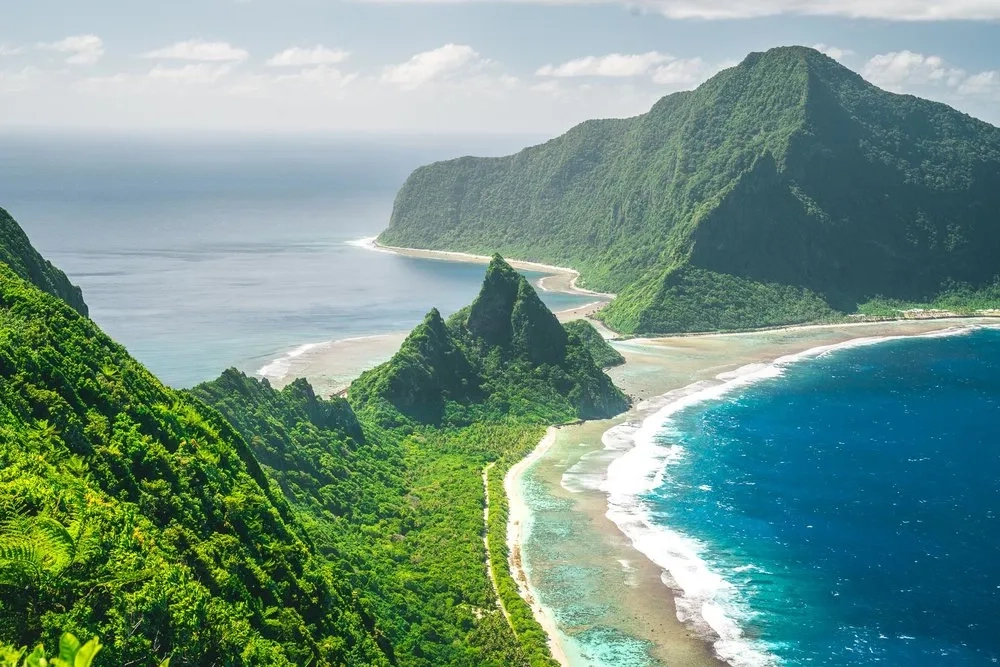Samoa's economy is primarily based on agriculture, tourism, and remittances. Popular professions in Samoa:
1. Government/Public Sector Jobs: Positions in the government sector, including administration, education, and healthcare, are commonly sought after. Salaries can vary based on the specific role and level of responsibility.
Average Salary Range: 15,000 WST to 30,000 WST per year, depending on the position.
2. Tourism and Hospitality: Jobs in the tourism and hospitality industry, such as hotel staff, tour guides, and restaurant workers, are important for Samoa's economy.
Average Salary Range: 10,000 WST to 20,000 WST per year, depending on the role.
3. Agriculture and Fisheries: Agriculture, including subsistence farming and commercial farming, is a significant sector. Jobs in fisheries and related industries are also common.
Average Salary Range: Salaries can vary widely, with some agricultural workers earning around 8,000 WST to 15,000 WST per year.
- Working Week: The standard working week in Samoa is typically 40 hours, with 8 hours per day. However, specific industries or occupations may have variations in working hours.
- Vacation Leave: Employees are entitled to annual leave, also known as vacation leave. The amount of leave varies depending on factors such as the length of service and the specific terms of employment.
- Sick Leave: Sick leave is typically granted to employees who are unable to work due to illness. The duration and conditions for sick leave may be specified in employment contracts or labor regulations.
- Public Holidays: Samoa observes several public holidays throughout the year. These holidays may include cultural, religious, and national celebrations.
- Maternity and Paternity Leave: Maternity leave is provided to female employees who are pregnant, and paternity leave may be available to eligible male employees.
- Minimum Wage: The minimum wage may vary based on factors such as age and industry. The minimum wage is approximately 2.30 WST per hour.
- Average Wages: Average wages in Samoa can vary significantly depending on the industry, level of education, experience, and the specific job role. In certain sectors such as government employment, healthcare, and skilled professions, average wages may be higher.
1. Cultural Influence: Samoa's rich cultural heritage places a significant emphasis on communal values and self-sufficiency. Entrepreneurship often aligns with these values.
2. Micro and Small Enterprises: Play a vital role in Samoa's economy. These businesses range from family-owned ventures to innovative startups.
3. Tourism-Related Ventures: Given Samoa's appeal as a tourist destination, entrepreneurship in the tourism sector has gained traction. Locals often establish businesses catering to tourism, such as guesthouses, restaurants, and cultural experiences, contributing to the nation's hospitality sector.
4. Agricultural Entrepreneurship: Agriculture remains a crucial sector in Samoa, and entrepreneurial endeavors in farming, fisheries, and agribusiness are essential for both food security and economic sustainability.
5. Challenges: Entrepreneurs in Samoa face challenges such as limited access to finance, infrastructure constraints, and market competition.
1. Apia: As the economic and administrative center, Apia hosts government offices, financial institutions, and various businesses. It serves as a hub for commerce, tourism, and services.
2. Vaitele: It is known for its industrial estates and businesses, making it a significant location for trade and manufacturing.
3. Mulinu'u: It serves as the political center of Samoa and is home to key institutions, including the Parliament House.





